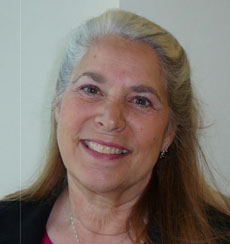
In the 2013 McKnight’s Online Expo session on Immediate Jeopardy, we did not have time to answer all the questions asked. Here is a follow-up Q and A, answered by presenter Joan Redden, the vice president of regulatory and consumer affairs at Skilled Healthcare. Her presentation is available on demand at mcknights.com/expo2013.
Q: What are the national trends for Immediate Jeopardy issues, in terms of what is most cited?
A: F-323 (Free from Accident and Hazards) is both the No. 1 tag for IIJ’s and G’s. It represents 20.1% of all IJ deficiences.
Q: My understanding is that a resident does have the right to refuse care, but that other than educating resident on consequences of decision there has to be mental health evaluation, and facility has to re-approach to ensure still their wish to refuse. How often do we re-approach? Is a mental health evaluation necessary?
A: There is no requirement federally for a mental health examination. You may want to check your State requirements. When it comes to decisions, the resident has the right to make them and change his mind. Refer to §483.10(b)(4) and(b)(8), notice of Rights and Services, Rights to Refuse Treatment and Experimental Research and to Formulate Advance Directives; and §483.15(b), Self-Determination and Participation, in order to determine if the use of a feeding tube is consistent with the wishes and instructions of the resident, if known (e.g., verbal or handwritten instructions, advance directive or living will) or the instructions of the resident’s legal representative, if the resident is unable to make his or her wishes known. (This self-determination is valid for all the resident’s healthcare decisions.)
Therefore, from a risk management perspective, if a resident is disagrees with the physician’s orders or the standard of practice, you will want to explain risks and benefits, and document that conversation. I would repeat this quarterly and anytime there is a change of condition to assure the resident still wants to abide by those original decisions.
Q: Have you found that when you fight an IJ to the CMS district office that they sometimes negotiate a lower severity level but keep any enforcement of civil monetary penalties in play?
A: I have addressed issues with CMS and have overturned the IJ, and therefore the penalty is eliminated. I agree, it is not uncommon that CMS reviews the concern and upholds the IJ, but reduces the penalty from a per day to a per instance.
Q: I had an allegation of an employee threatening a resident. The resident was eventually diagnosed with bipolar but there no record of bipolar was on chart when she was admitted. How do we approach? We did investigate.
A: Based on EDJ, all allegations of abuse are investigated. Thus you were correct in investigating. To protect the resident during the investigation, an employee should be suspended until a decision is reached.
Q: Does immediate Jeopardy means the surveyors stay in the building until the immediate jeopardy is resolved?
A: Great question, but no! Unless something is so egregious that it threatens the safety of the residents, in which case they will begin looking for trustees or placing residents in a safe environment. They can monitor during the process, but generally they do not stay.
Q: An Alzheimer’s resident is coded as sometimes forgetful 2 to 3 times a week, and is allowed to smoke and walk around the outside of the facility. What is the culpability as to having supervision or not having supervision?
A: If a resident is diagnosed as forgetful 2-3 times a week, you are already put on notice. I would be very cautious about leaving him/her totally unsupervised. If something occurs that changes this resident’s routine, and becomes distracted or anxious, would you feel certain that this resident would not have an issue involving safety?
Q: If an alert and oriented resident leaves facility without a pass and does not return, would this be considered an elopement, and is it reportable?
Check your state regulations as to your reporting requirements. Otherwise, generally, I do a follow-up call to assure the resident has gone home Against Medical Advice, document the conversation and instructions and notify the physician. As we are patient advocates, if this is not a safe place for the resident, I would notify APS. We can’t force them to remain in our settings, but we can refer the information to other agencies. Giving the state a head’s up on an alert resident leaving your facility AMA is not a bad idea. Just make sure you have completed a thorough follow up!




